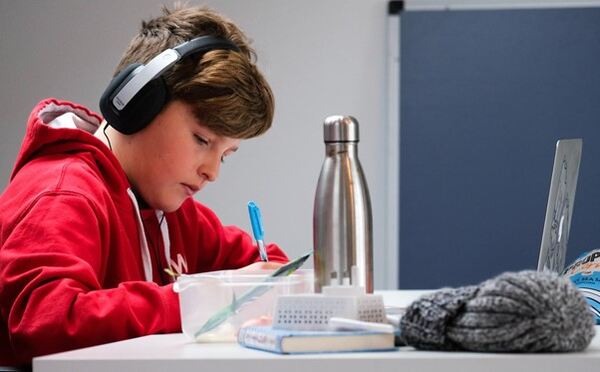Overcoming Challenges to Disability-Inclusive Education
Disability is diverse and includes persons from every race, gender, culture, age, geographic region, and socioeconomic status. Anyone can belong to this group, and the statistics increase with age. Persons with disabilities, especially children, are among the most neglected groups in society.The case is even worse with students, increasing their dropout risk.
Fortunately, education leaders can take certain measures to create more inclusive conditions for students with disabilities.
Challenges To The Inclusion Of Students With Disabilities
Inclusive education accommodates learners in a community or class regardless of their strengths or weaknesses and maximizes the students’ potential. It comprises strategies, processes, and activities promoting the right to equal education.
Several challenges revolve around including students with disabilities; we break them down in this section.
Inadequate Teacher Training
Teachers are key in the implementation of inclusive learning. Unfortunately, most teachers lack training in teaching and handling children with disabilities. This lack of proper training, knowledge, and qualifications derails the inclusion of students with disabilities.
Inclusive education is essential for embracing diverse learners, including those who benefit from Home and Community-Based Services (HCBS). Understanding the HCBS can play a crucial role in providing personalized educational experiences for students with developmental disabilities within community settings, thereby promoting a richer learning environment that accommodates all cognitive and social needs.
Societal Norms And Attitudes
Many people are still die-hards of old attitudes and resist accommodating students with disabilities. Certain cultures worsen the situation, resulting in discrimination and hindering education.
Lack Of Inclusive Teaching Methods
Incorporating inclusive teaching methods depends on financial support, which is lacking. According to UNESCO, 2009, the lack of funding hinders professional development, which is key to sustaining school specialists and teachers.
Lack Of Accessible Technology
Inclusive education relies on an environment that is friendly and accessible to a diverse population. The lack of accessible technology to create such environments will hinder the implementation of inclusive education with equality, dignity and without to discrimination or prejudice.
Curriculum
A rigid curriculum that does not accommodate different teaching methods or experimentation for students with disabilities is a setback to successful inclusion. Also, study plans with little or no recognition of different learning styles will prevent students with disabilities from benefiting from the school experience.
Socio-Economic Factors
Negative attitudes towards a person with disabilities caused by religious affiliations or culture can affect its inclusion in schools. Some believe that disability is a punishment and will isolate such members instead of helping them.
The lack of funding for disability programs to ensure school accommodation is also a concern. Most schools lack facilities, trained teachers, and educational materials.
How To Create A Culture Of Inclusion
According to several studies, students risk dropping out if they do not attain a sense of belonging within two months of joining the school. Creating a culture of inclusion is, therefore, necessary to keep such students in school in the following ways:
Develop Inclusive Classrooms
Creating a safe and welcoming educational experience for everyone implies paying attention to the physical facilities in terms of design and accessibility. This means taking into account individual differences in learning, socializing, and working.
Adopt Inclusive Teaching Methods and Materials
A school knowledgeable about the limitations that students with disabilities experience from external barriers is likely to adopt inclusive teaching methods and materials. For instance, students with learning disabilities may have processing disabilities that are solvable through information conveyance, such as testing procedures.

Create A Stand-Alone Disability Studies Department
A standalone disability studies department will accommodate students with disabilities in higher education settings. Such students will gain skills and knowledge customized for their practice at their workplace.
Embed Disability Inclusion Into Performance Review For All
A negative attitude of parents and teachers toward disabled students hinders the implementation of inclusion. Hence, having a full inclusion model encompassing disabilities in a performance review should be accepted for educators to limit such discrimination.
Ensure Accessible Technology
Educators should ensure classroom accessibility for students with disabilities as per the Americans with Disabilities Act (ADA). ADA compliance for websites, captioned videos, document remediation and transcription services in relaying information will keep disabled students in school. ADA requires captioning as a standard element for all video use in classes and that all new content is posted on the website for accessibility. ADA also requires accommodation for students with disabilities through inclusive classrooms.
Conclusion
A person’s situation in life is no one’s choice, and embracing disabled individuals in institutions rather than discriminating against them will change the attitude of society in the long run. Recognizing and overcoming the barriers of inclusive education will make every child comfortable in school for a better and healthier community.












 Author bio: Cora Gold is the Editor-in-Chief of women’s lifestyle magazine,
Author bio: Cora Gold is the Editor-in-Chief of women’s lifestyle magazine, 



